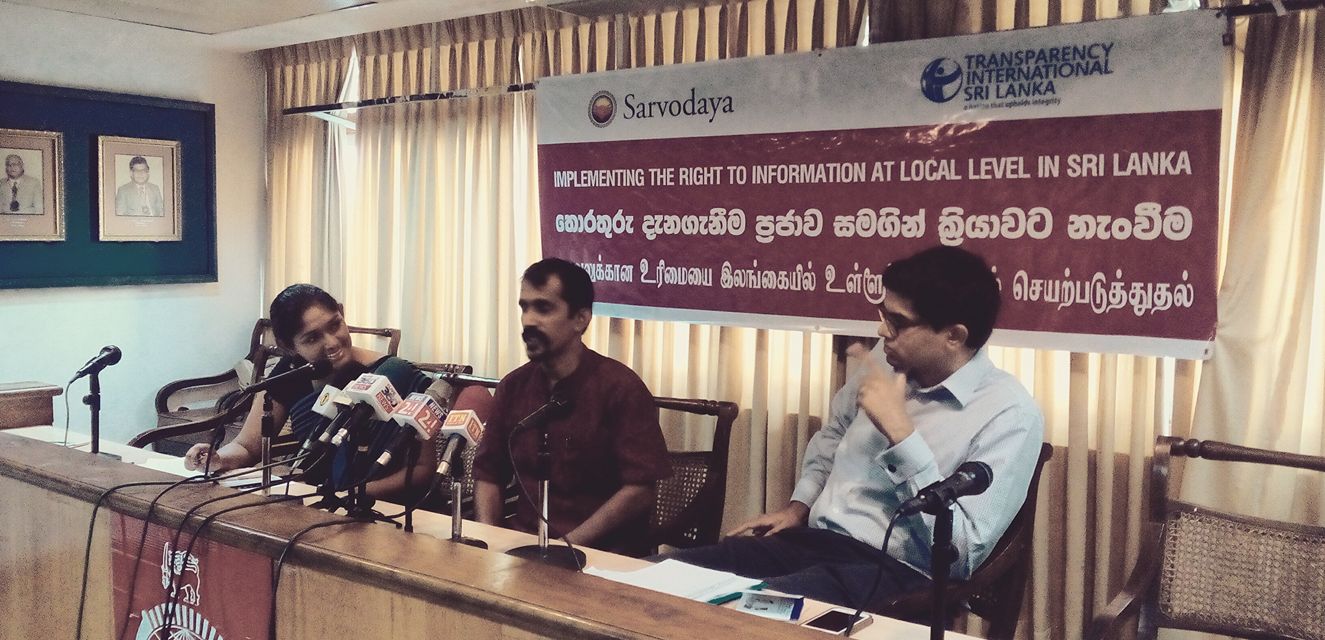A Brief Colonial History Of Ceylon(SriLanka)
Sri Lanka: One Island Two Nations
A Brief Colonial History Of Ceylon(SriLanka)
Sri Lanka: One Island Two Nations
(Full Story)
Search This Blog
Back to 500BC.
==========================
Thiranjala Weerasinghe sj.- One Island Two Nations
?????????????????????????????????????????????????Wednesday, July 5, 2017
Sunday Leader And Colombo NGOs Confuse RTI Law
 More
than half of the time of the understaffed, overworked and
under-budgeted RTI Commission of Sri Lanka is taken in explaining
matters to Colombo’s privileged English-speakers who do not read the
gazette and the Act.
More
than half of the time of the understaffed, overworked and
under-budgeted RTI Commission of Sri Lanka is taken in explaining
matters to Colombo’s privileged English-speakers who do not read the
gazette and the Act.
The arrogance of a few Colombo based media and NGOs in failing to follow Sri Lanka’s Right to Information Act and
gazette in their information requests has become a major stumbling
block to the effective implementation of the regime, the Colombo
Telegraph (CT) understands.

In
contrast, provincial journalists and civil society organsations (CSOs)
with little access to the law given the lack of resources in rural areas
have been enthusiastically and properly using the gazette and
regulations/rules of the Ministry of Media and the RTI Commission, a
source from the Ministry of Media said.
The
Media Ministry is the nodal agency responsible for implementing RTI. CT
asked him as to why he thought this was different and he said ‘the
problem is that these people in Colombo think the rules do not apply to
them. They go for the easiest and most convenient way without reading
the RTIO1 form or the Rules of the Commission that have been gazetted.
Ironically these are the very people who should read and understand as
they are conversant in English. But that is not what we are seeing.
Maybe this is a good study for a social scientist to spend time in!’
This Sunday (2nd July)
the Sunday Leader carried a correction of the RTI Commission of Sri
Lanka in response to an article by a journalist (Nirmala Kannangara) who
had claimed that she had emailed the Commission in an appeal on her
right to information request against the Department of the Police being
denied but had not obtained any response. The Commission’s correction
had informed the Leader that this claim was factually incorrect. The
Commission had responded to her, pointing to the appointment of an
Information Officer by the Department. The head of the Department will
be the DO. It had said that, if a proper appeal is filed against the
refusal, the Commission will act to the fullest extent of the law.
The
journalist was told that she could not file appeals to the Commission
by email as that was not permitted by the gazette. Appeals must be filed
in person (or through any representative) or sent by registered post.
The correction was carried by the Leader in an inside page and also in
social media as online websites had also re-published the incorrect
story. Commenting on this, accountant Yohes Yoheswaran said on twitter,
‘it is ‘sad that Sri Lankan journalists are not familiar with the
Rules.’ He pointed out, ‘I followed the rules as per the RTI Act and got
the information I asked for from the Institute of Chartered Accountants
of Sri Lanka.’
Sri
Lankan journalist Amantha Perera pointed out that there is a ‘serious
lack’ of application/awareness by journalists of RTI in Sri Lanka right
now. Perera was responding on social media to an article in the New
Indian Express on a recent book in India ‘Journalism Through RTI;
Information, Investigation, Impact’ by journalist Shyamlal Yadav, saying
that this will be true in Sri Lanka only if journalists know how to use
the RTI Act to gain information.
Ministry
sources explained that more than half of the time of the understaffed,
overworked and under-budgeted RTI Commission of Sri Lanka is taken in
explaining matters to people who do not read the gazette and the Act.
Last month, the Commission fixed for hearing, consideration of questions
of law on the failure of Colombo based RTI trainer Transparency International Sri Lanka to
specify the fact of citizenship in information requests filed by them
on the assets declarations of the Prime Minister and the President.
This
was not in compliance with Section 3(1) of the RTI Act which gives
information under the Act only to a citizen and also RTI Form No 1 in
the gazette which asks the requester specifically to declare
citizenship. The gazette permits an information request even on a blank
sheet of paper, provided that the essential requirements are met. In a
similar way, appeals continue to be filed on email by journalists of the
Colombo based Sinhala and English media which are not permitted by the
gazette.
This resulted in the Commission issuing an Important Announcement last week on its website (http://www.rticommission.lk) asking
information requesters to remember to always declare the fact of
citizenship in accordance with the gazette form RTI01. It was also
pointed out that an Appeal to the office of the RTI Commission cannot be
sent through electronic mail.

